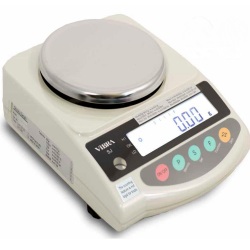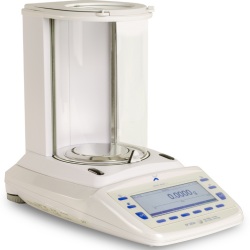You’ve probably been using your laboratory balance for years and you’ve come to rely on it to the point where it almost feels like an extension of your own hand. But how long is too long to use the same electronic weighing balance?
How do you know when it’s time to replace your laboratory balance?
One of the most important ways to extend the life of your balance, of course, is to have it serviced by certified scale technicians on a regular basis. A factory trained scale technician can certainly make recommendations on whether it’s time to replace your device. Some of the questions you should consider are:
- Does your balance need maintenance much more often than it used to?
- Does your balance hold its calibration, or does it need to be re-calibrated after just a few tasks?
- Are its weighing results consistently unstable, with drift or unexplained jumps? Have the stability and repeatability become inaccurate?
- Are there signs of corrosion in the pan or at access points like the communications interface?
- Have your weighing needs changed, or do you need more advanced features such as updated communications interfaces, data storage or PLUs?
Answering yes to any of those questions does not necessarily mean your balance needs replacing.
For example, static electricity could cause drift or instability and an anti-static device such as an ionizer may remedy the issue. Vibration from nearby equipment could also be the culprit, in which case an anti-vibration table may be what you need. For optimal performance, operate your balance away from vibrations, excessive heat or moisture, direct sunlight, chemical vapors and drafts.
Diagnosing the Problem
If you’re experiencing problems with your balance, first try the troubleshooting tips included in the product manual. You may be pleasantly surprised to find a quick fix! A service technician can rule out many problems, such as warped load cells, malfunctioning internal calibration motors or even software issues.
If your balance requires more frequent maintenance or calibrations than it used to, you’ll have to consider lost productivity to downtime in addition to money spent on repairs or technicians.
If you’re seeing signs of corrosion, you’ll need to address possible causes of rust (often, excess moisture) before looking into cleaning it or replacing the balance just to have the same thing happen to the new unit.
Which Features Does My Balance Need?
Next, look at your current needs. Even if your balance is in working order, does it fulfill everything you need it to do? Consider the efficiencies that a newer device can bring to your laboratory operations.
Maybe you have an older balance that lacks the capability to communicate with a computer, USB flash drive or printer. Some of today’s balances even have multiple options like RS-232 and USB interfaces included on the same device, like the Adam Equinox series weighing balances.
Can your balance format Good Laboratory Practice-compliant printouts? Quite a few analytical balances and many precision balances are capable of GLP-compliant output. When doing formulations, can your balance store ingredients? Or perhaps you need under hook weighing or density tests? Contact us with your needs and we can recommend the right weighing scale or the correct scale calibration / service plan for your specific needs.
If you do decide the best course of action is to replace your balance, Central Carolina Scale can help you with tips to select a new one and guidance on which balance is right for you! Call (919) 776-7737 to speak with our sales department.



